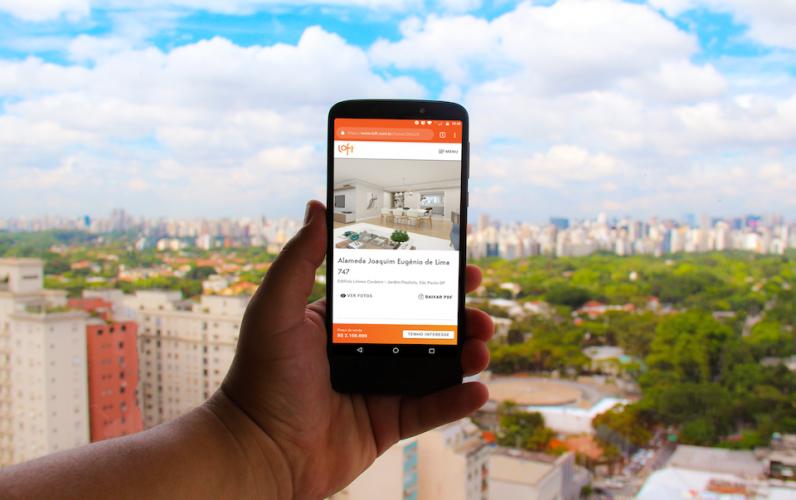Loft
Loft, a Brazilian startup less than a year old, has just been valued at $370 million (money-wise) in a round dominated by US funds and tech industry executives.
The bet is ambitious: to bring dynamism and liquidity to the most stable market – real estate – by buying, renovating and reselling apartments on a platform that will continue to add more services and amenities over time.
The company just raised $70 million (250 million real) in Series B. Two-thirds of the round comes from the same investors who backed Loft in July of last year when the founders raised $18 million for the startup.
The investors in this Series A are: Andreessen Horowitz, who is making his first investment in Brazil; Thrive Capital (a New York venture capital firm); Monashees and Canary – plus capital from the founders themselves. Individual investors included: Max Levchin (PayPal), Eric Wu (founder of OpenDoor), Joe Lonsdale (founder of Palantir) and David Velez (of Nubank).
Series B, which ended this week, has added new investors: Valor Capital (from former US Ambassador to Brazil Cliff Sobel); Fifth Wall (a Los Angeles-based fund specializing in real estate disruption) and QED, owned by Nigel Morris, founder of Capital One.
QED has one of the best track records for financial technology investments in the world; His last QED fund returned 10x the investment. In Brazil, QED is already investing in Nubank, Creditas and GuiaBolso.
The tour also featured executives like Hugo Barra (now on Facebook) and Mike Krieger (founder of Instagram). Loft has seven co-founders with backgrounds in technology, real estate and finance. The two oldest partners, Matti Bench and Florian Hagenbuch, met during their internship at Goldman Sachs in Europe and have been friends for 10 years.
After Goldman, Florian worked at a private equity fund and Mattie at a hedge fund. But they wanted to do it. At that time Brazil was at the start. They returned to São Paulo and founded Printi, an online printing company with 550 employees today and a turnover of R$ 200 million.
When they sold a stake in Printi in 2014, the two used the money to invest in startups. They bet money on 99, VivaReal, Quinto Andar and Gympass. They later consolidated their venture capital investments into Canary, the fund managed by Marcos Toledo, formerly MSquare, and Julio Vasconcelos, founder of Peixe Urbano.
The loft market works like this: owners and/or brokers register properties that go on an analysis and price discovery path. After the initial inspection, the Loft team carries out a technical inspection of the property. If the deal goes through, Loft will pay for the property in cash, providing the seller with immediate liquidity. The big challenge is the good price.
“We’re a fair-priced market player, not a soul-buyer. We want to win on volume, not necessarily on every deal,” said Pencz, co-CEO and founder of Brazil Journal. Loft ranks properties into five levels, a scale that says, “There will be a lot of work.” Level 1 properties only require cleaning and painting.
Level 5 properties require everything to be redone: demolish walls, replace all electrical and plumbing, and install quality finishes. The average complexity value for the objects acquired so far was 3.5.
“We are rebuilding to increase liquidity and deliver the end product,” says Hagenbuch. “The great demand today for affordable revitalized housing and in neighborhoods where there isn’t much supply.”
Operating in a country where new properties are not really “ready” – most of it is delivered in the basement – Loft started working in metropolitan areas where the property inventory is outdated: Jardim América, Jardim Paulista and Itaim Bibi.
Between purchase and sale, the average property turnover was approximately 3 months and Loft expects the PSV (General Sales Value) for the year to be in excess of R$2 billion. The company intends to operate in seven more neighborhoods in São Paulo by the end of the year (Vila Nova Conceição and Jardim Paulistano later this semester) and to reach Rio and Belo Horizonte between the end of the year and early 2020.
